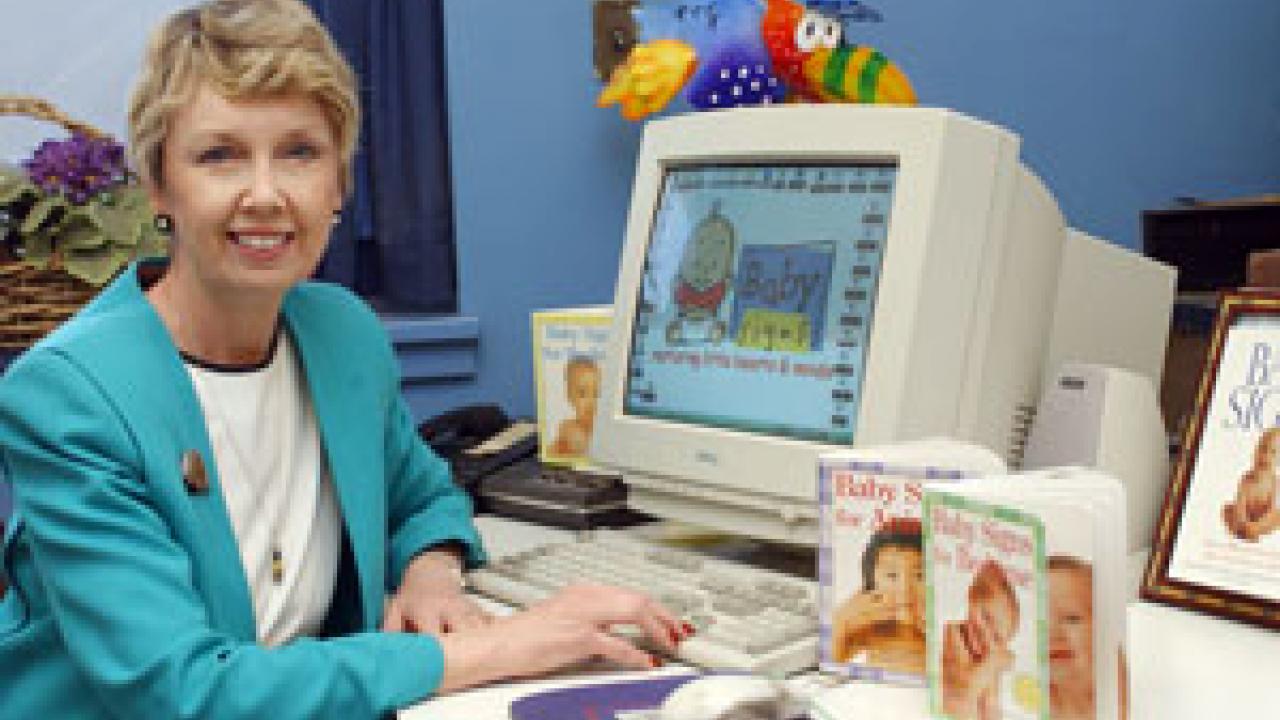A best-selling book; appearances on "Oprah," "Dateline NBC" and even "Ripley's Believe it or Not"; and a distinguished 30-plus-year teaching career. All because of a mistake on a graduate school application.
Such is the story of psychology professor Linda Acredolo, who accidentally checked the box for "developmental" instead of "clinical" psychology program on her application for the University of Minnesota. The university, it turned out, had one of the best developmental psychology programs in the country.
"I was totally overwhelmed," she said. "I hadn't even taken a developmental psychology course and I was going against people who were undergraduates at Harvard, Stanford and Berkeley."
Acredolo stuck with it though and was one of only six of her class of 21 to complete her studies in 1972. After spending three years on faculty at State University of New York, in her hometown of Buffalo, she was convinced by her then-husband, a California native, to move to the West Coast.
While Acredolo was studying spatial knowledge in babies in 1982, she made an interesting observation in her own 12-month-old daughter, Kate, that would change the direction of her career.
"I noticed that she began to make up signs to communicate," she said. "My graduate student Susan Goodwyn and I started to look into it and we found that no one had studied it before. That was the start of the second half of my career."
Acredolo and Goodwyn discovered that babies can create symbolic gestures for objects and actions before they can talk, like flapping their arms to indicate "bird" or tapping their palm for "more." With the help of a grant from the National Insititutes of Health, they proved that the sign language actually helps babies learn to talk sooner instead of delaying verbal development.
With encouraging results in hand, the colleagues published Baby Signs: How to Talk With Your Baby Before Your Baby Can Talk in 1996. The book, meant to help parents communicate with their children at very early ages, quickly became a best seller. It has now sold 500,000 copies and has been published in 14 languages.
"We get e-mails from around the world thanking us for our research," Acredolo said, noting correspondence with South Africa, the Netherlands and Singapore.
Baby Signs has exploded into a full-time business, but Acredolo has since found time to write two more books with Goodwyn. Baby Minds examines infant cognition, and Baby Hearts, which is due out at the end of this year, looks at infant emotions. Acredolo says she's trying to create a comprehensive view of infants for those who care for them.
"We've translated our research findings into terms parents can understand," she said. "We're trying to give back to the taxpayers. They've funded our research, after all."
Acredolo spends plenty of time in the classroom as well. She has been teaching an undergraduate developmental psychology course since she first came to Davis. She also has taught introductory, research methods and graduate classes.
In her limited free time, Acredolo enjoys playing the piano and listening to popular music from the 1940s and '50s. Some of her favorite big band tunes are "Misty," "Nature Boy" and "Star Dust."
Acredolo is married to Larry Stark, a former professor at the medical center. She has a 17-year-old son, Kai, in addition to daughter Kate, the original baby signer, who is now 22 and working for Baby Signs.
What appeals to you about developmental psychology?
Developmental is a smorgasbord of psychology. You get to study the beginnings of everything, from cognitive to language to abnormal.
What's the biggest issue in your field today?
The developmental field is trying hard to have an effect on public policy, which is relatively new. It's exciting to bridge that gap and help the world's children. The Early Head Start program is a great example, focusing on ages 0-3.
What are your favorite and least favorite aspects of your job?
Being in the undergraduate classroom is definitely my favorite. I love telling people how smart babies are. My least favorite is the committee work.
Read any good books lately?
I Don't Know How She Does It by Allison Pearson. It's about a professional working mother and how frantic a life it is. It's hilarious, but it's so true. I identify so strongly with it. Also Changing Minds by Howard Gardner. It's about how people are persuaded to, you guessed it, change their minds.
What's something surprising about you that no one knows?
I'm very shy. Being a teacher helps me deal with it because the students are so supportive and so eager for the information I have.
What is your guilty pleasure?
When I've just finished a project and I really need to unwind, I go shop at Goodwill or another thrift store. Actually, most of the clothes I wear in class I buy second-hand. It's a real cheap hobby.
What is your most treasured possession?
Videotapes I have of my children when they were little. That's what I'd save in a fire. Everything else could go up in flames.
If you could have three wishes, what would they be?
That my children have happy, productive lives; that we could get out of the mess in Iraq; and that Gore had become president. •
